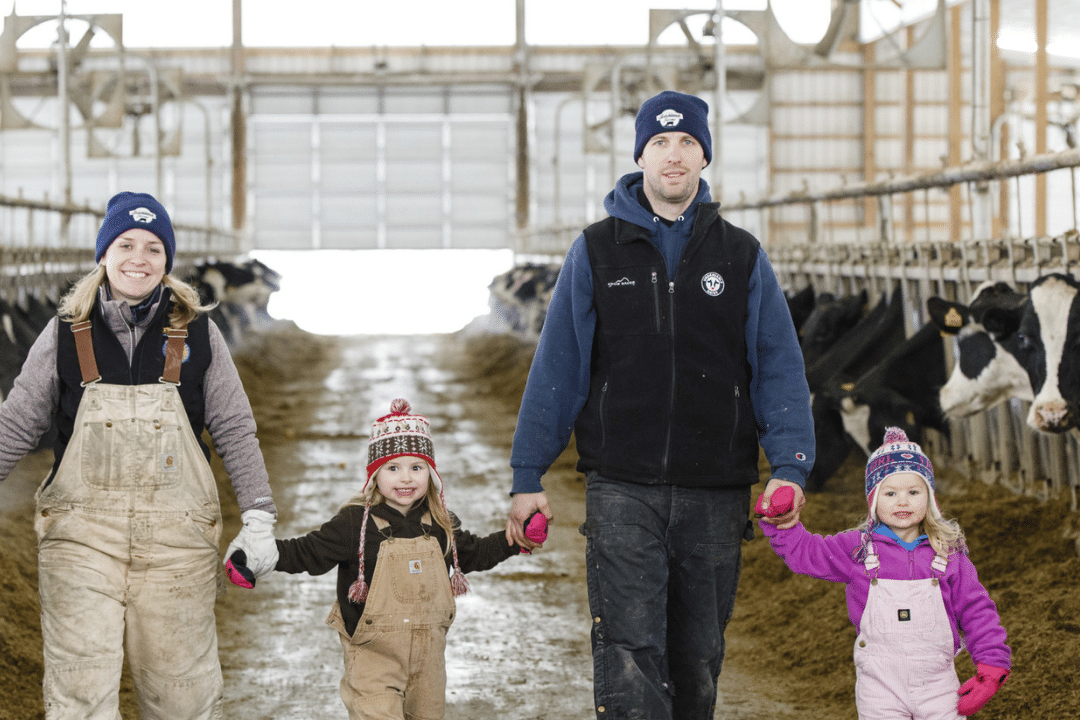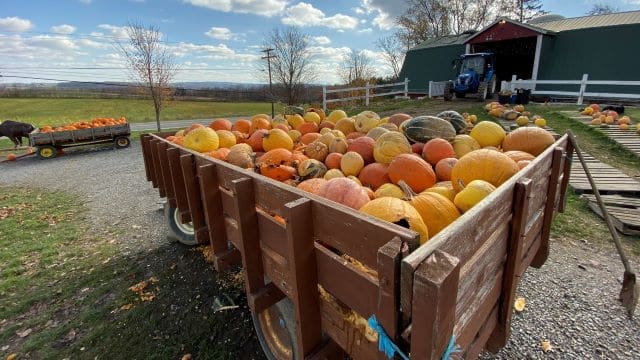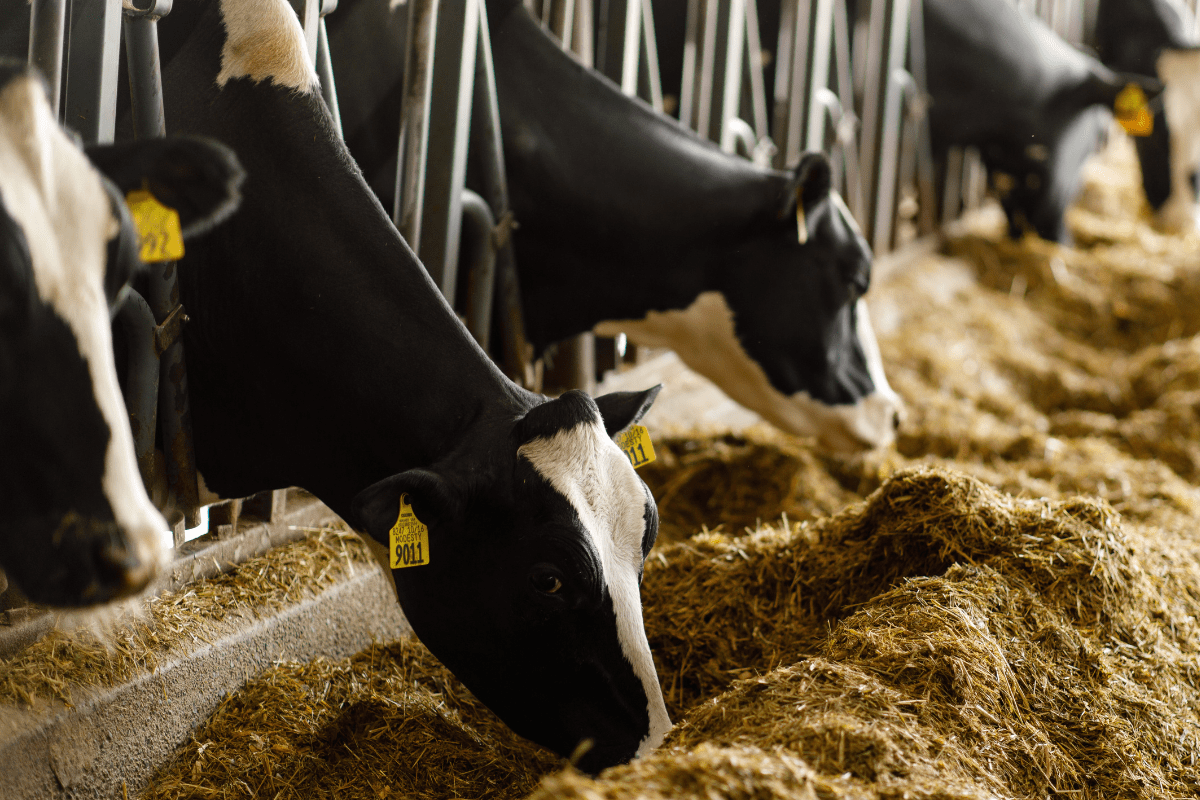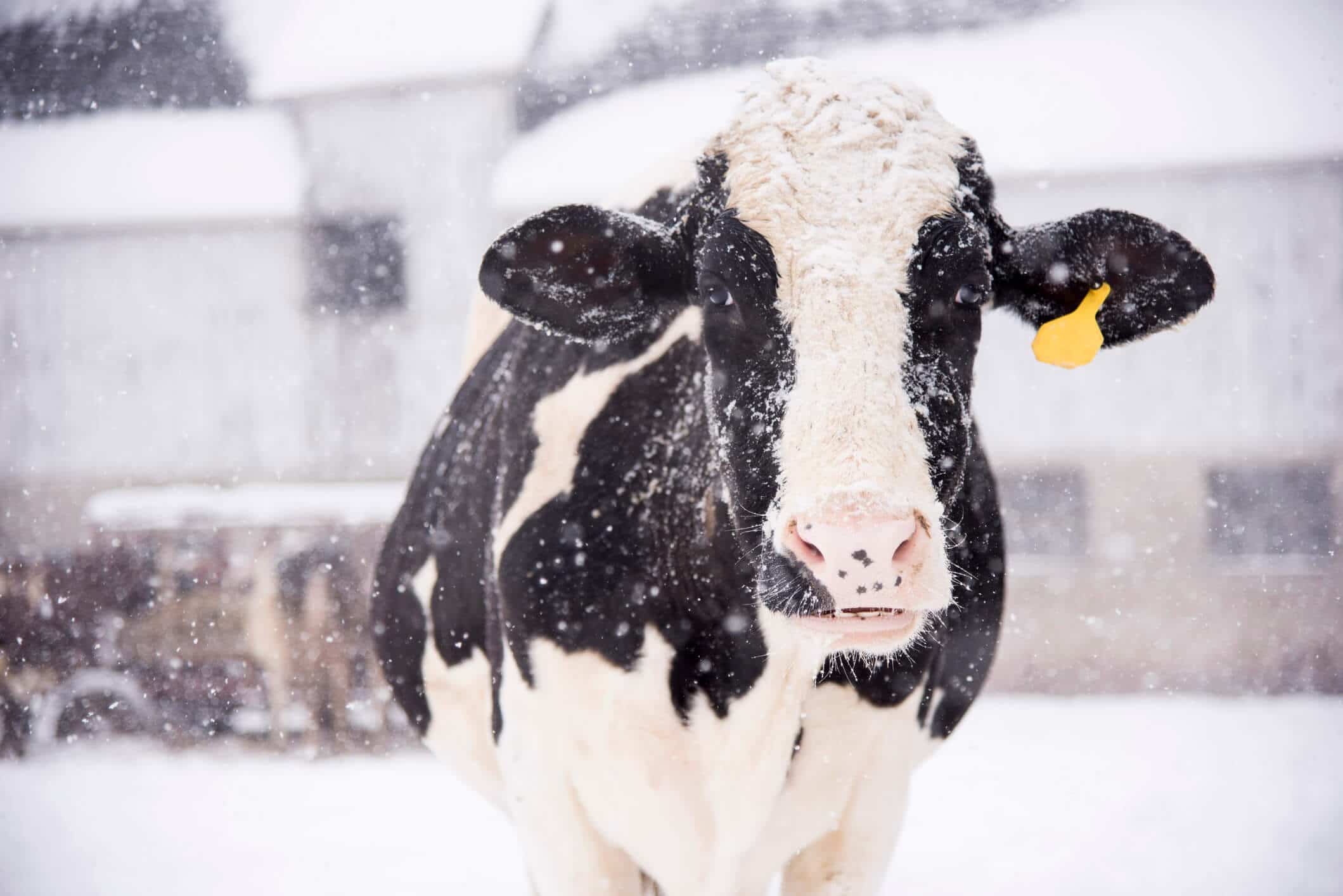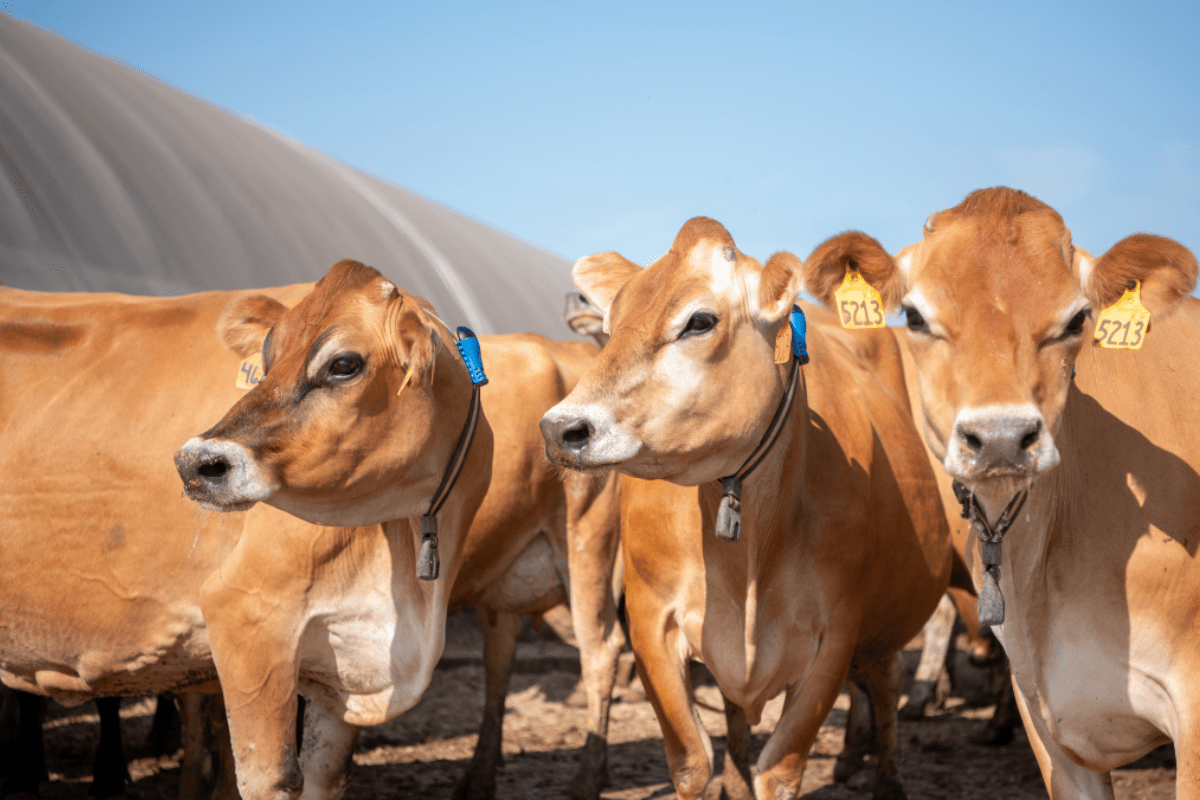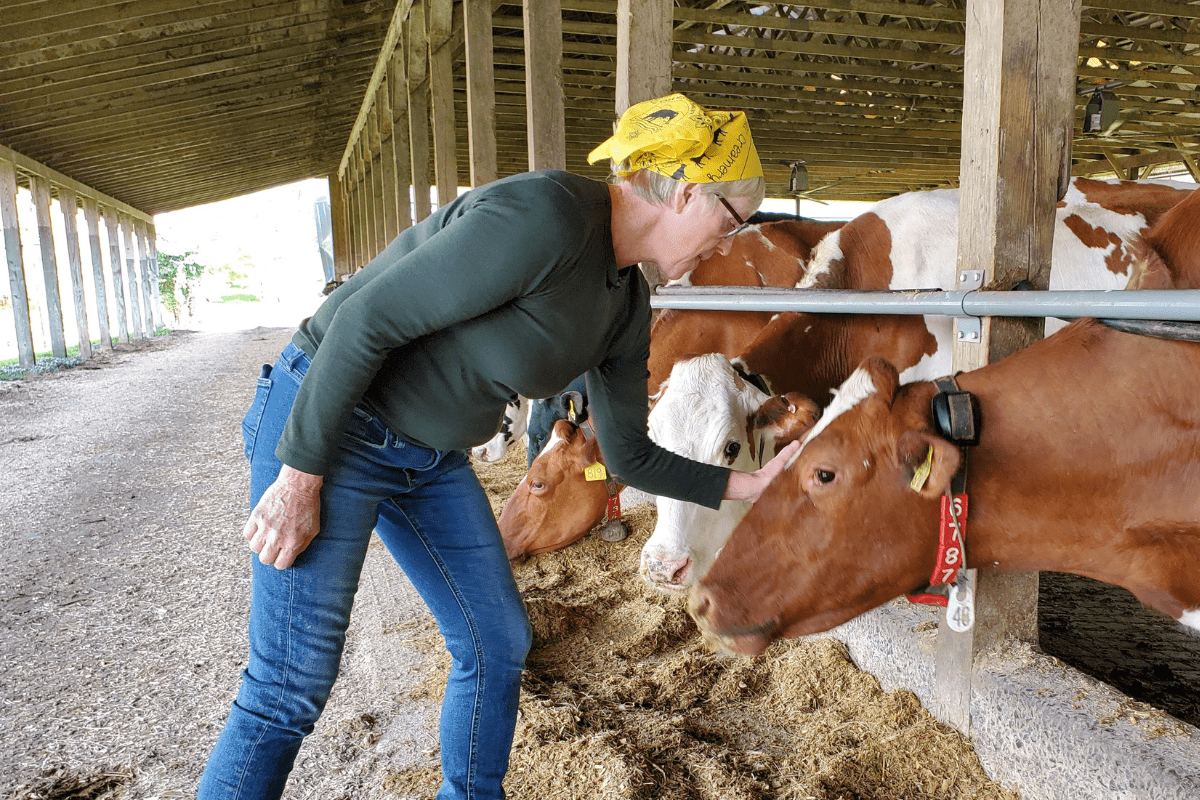Dairy cows have a diverse and balanced diet to meet their nutritional needs and support their overall health and milk production. The specific feed and diet of dairy cows vary from farm to farm, depending on factors such as location, climate, and available resources.
Total Mixed Ration (TMR) for Dairy Cows
A Total Mixed Ration (TMR) is a method of feeding dairy cows that involves blending various feed ingredients into a well-balanced and homogeneous mixture. It is kind of like the casseroles that we eat, a bunch of different foods combined together into one filling and nutritious meal. Large mechanical mixers are used to make sure all the different ingredients get mixed thoroughly.
This approach ensures that each cow receives a precise and consistent combination of nutrients in each bite, promoting optimal health, milk production, and overall performance.
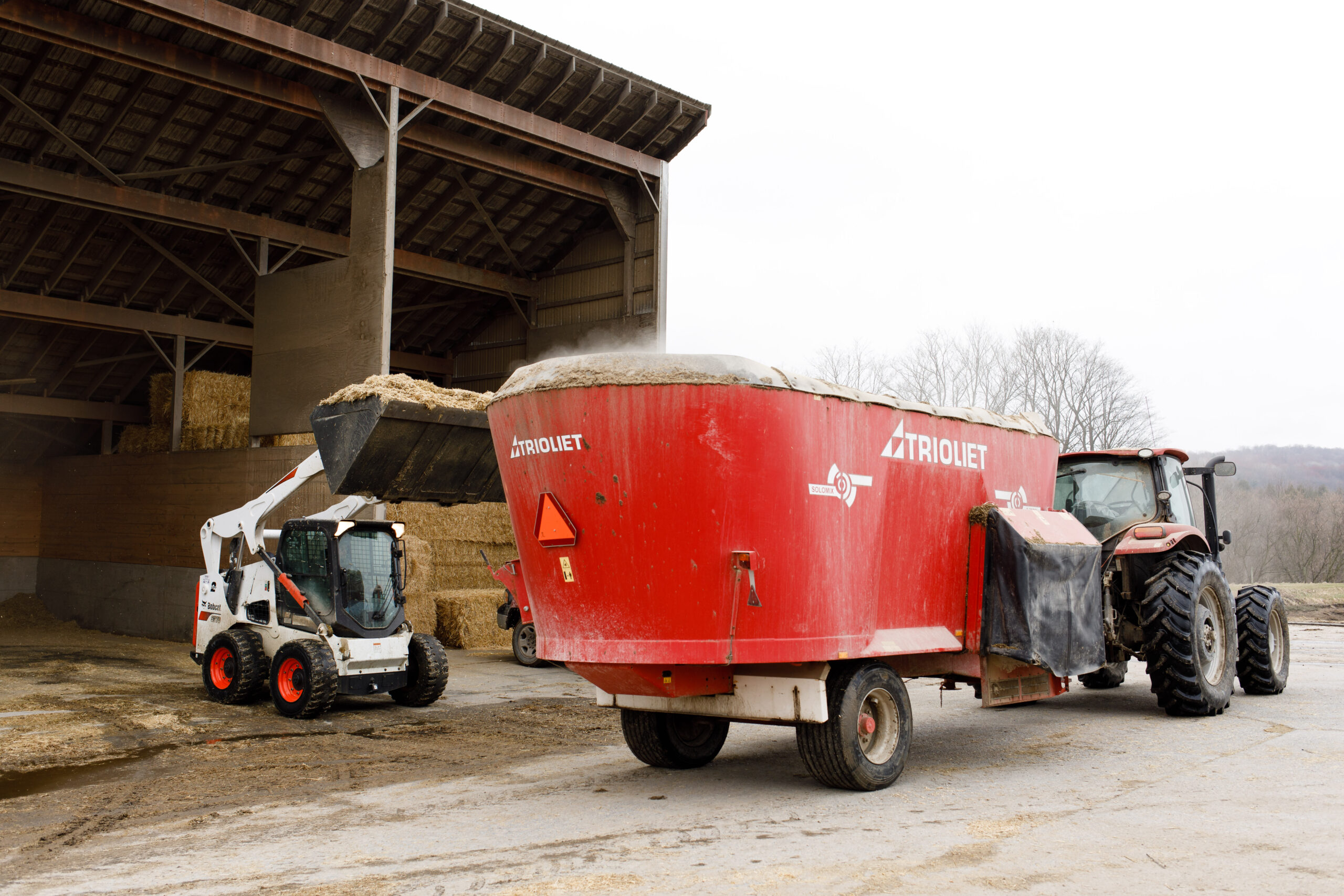
Some of the most common elements of a total mixed ration for dairy cows include:
Hay
Hay is dried grass, legumes, or other forage crops that are cut and stored for feeding cows. It serves as an essential roughage component of the cow’s diet.
Silage
Silage is fermented forage made from crops like corn, alfalfa, grasses, or other plants. The crops are harvested at their peak growth stage, chopped, and stored in airtight conditions to preserve them.
Grains and Concentrate
Dairy farmers supplement the cows’ diet with protein-rich grains like corn, soybeans, barley, and wheat. These grains provide additional energy and essential amino acids, supporting milk production and overall cow health. Supplementing the cows’ diet with protein-rich grains like soybeans, canola meal, and cottonseed helps meet their dietary requirements.
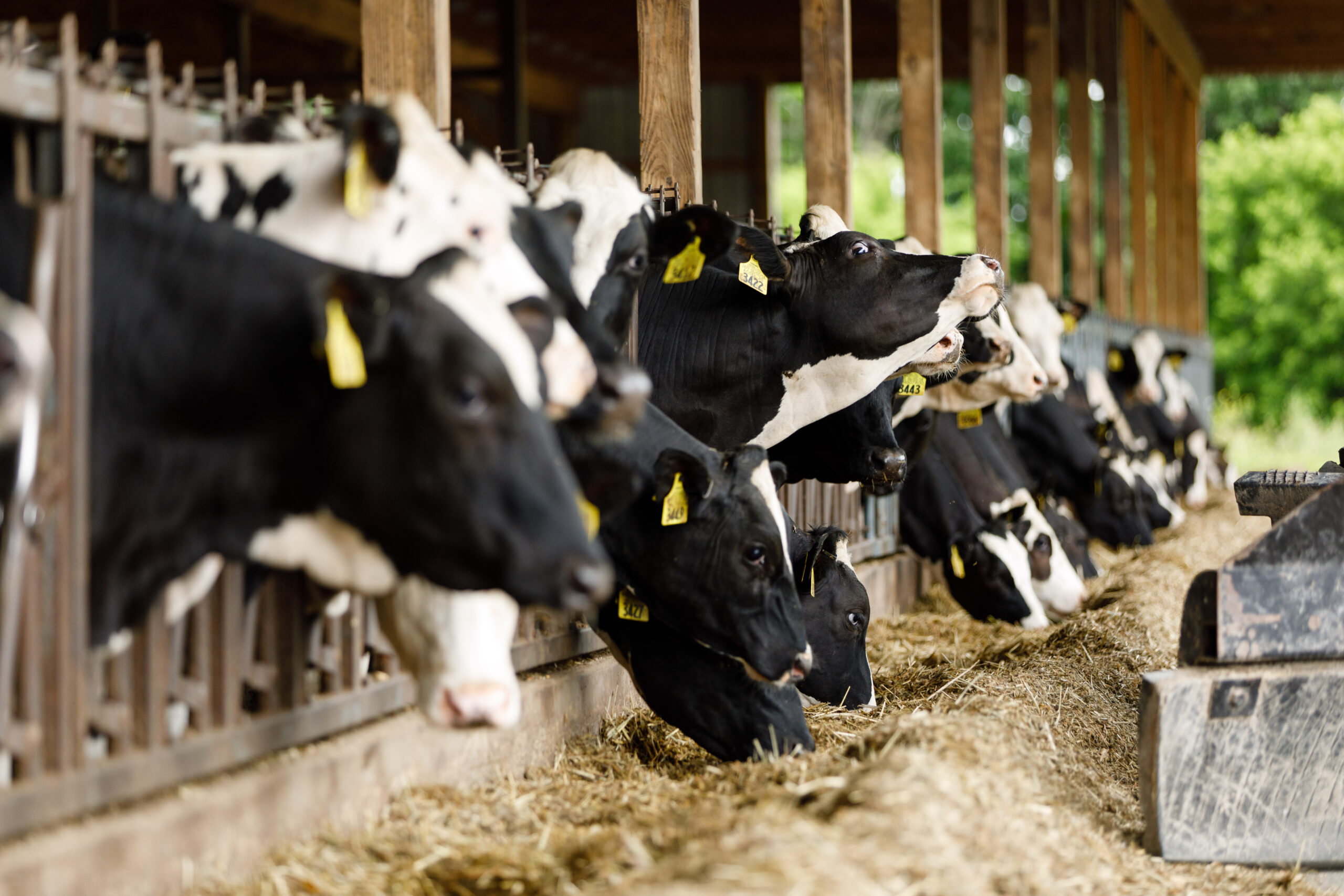
Protein Supplements
In addition to grains, cows may receive protein supplements like soybean meal, canola meal, or cottonseed meal to meet their dietary requirements for optimal milk production.
Vitamins and Minerals
Dairy cows require specific minerals and vitamins to maintain their health and produce high-quality milk. These essential nutrients are often provided through specially formulated mineral mixes and vitamin supplements.
Byproducts and Feed Additives
Some dairy farms incorporate byproducts from food processing. A byproduct is something that is produced as a result of a primary process, activity, or production, but is not the main intended outcome. Below are a few of the byproducts that can be incorporated into a cow’s diet:
| What We Eat or Use | Byproducts Cows Eat |
|---|---|
| juice from oranges | citrus pulp |
| sugar from sugar beets | beet pulp |
| beer from barley, hops | brewer’s grains |
| chocolate | candy waste |
| bakery items (bread, cakes, donuts, etc.) | bakery waste |
Additionally, certain feed additives, like probiotics or enzymes, may be included to enhance digestion and promote cow health.
Fun on the Farm
Learn more about what cows eat and where it comes from in these two informational episodes of our ‘Fun on the Farm’ video series.
What Do Cows Drink?
Water is the lifeline for any living being, and dairy cows are no exception. Access to clean, fresh water is critical to keeping cows hydrated, which, in turn, contributes to high-quality milk production.
The water intake of dairy cows can vary based on several factors, including their size, age, stage of lactation, diet, environmental conditions, and level of activity. On average, a dairy cow may consume up to 50 gallons of water per day.
During hot and humid weather, water intake tends to increase as cows drink more to stay hydrated and regulate their body temperature. Additionally, cows that are producing more milk will generally have a higher water intake to meet the increased demands of milk production.
Providing access to clean and fresh water is crucial for the health and well-being of dairy cows. Adequate hydration is essential for maintaining milk production, supporting proper digestion, and ensuring overall cow health. Dairy farmers ensure that water sources are readily available to their cows throughout the day.

